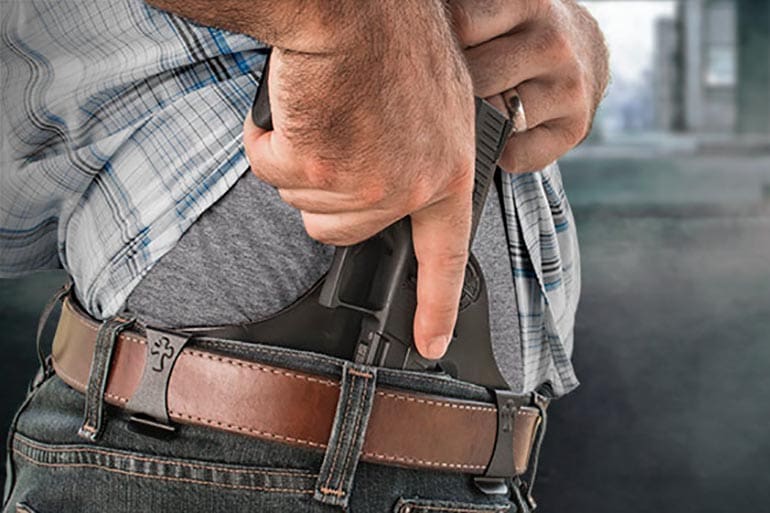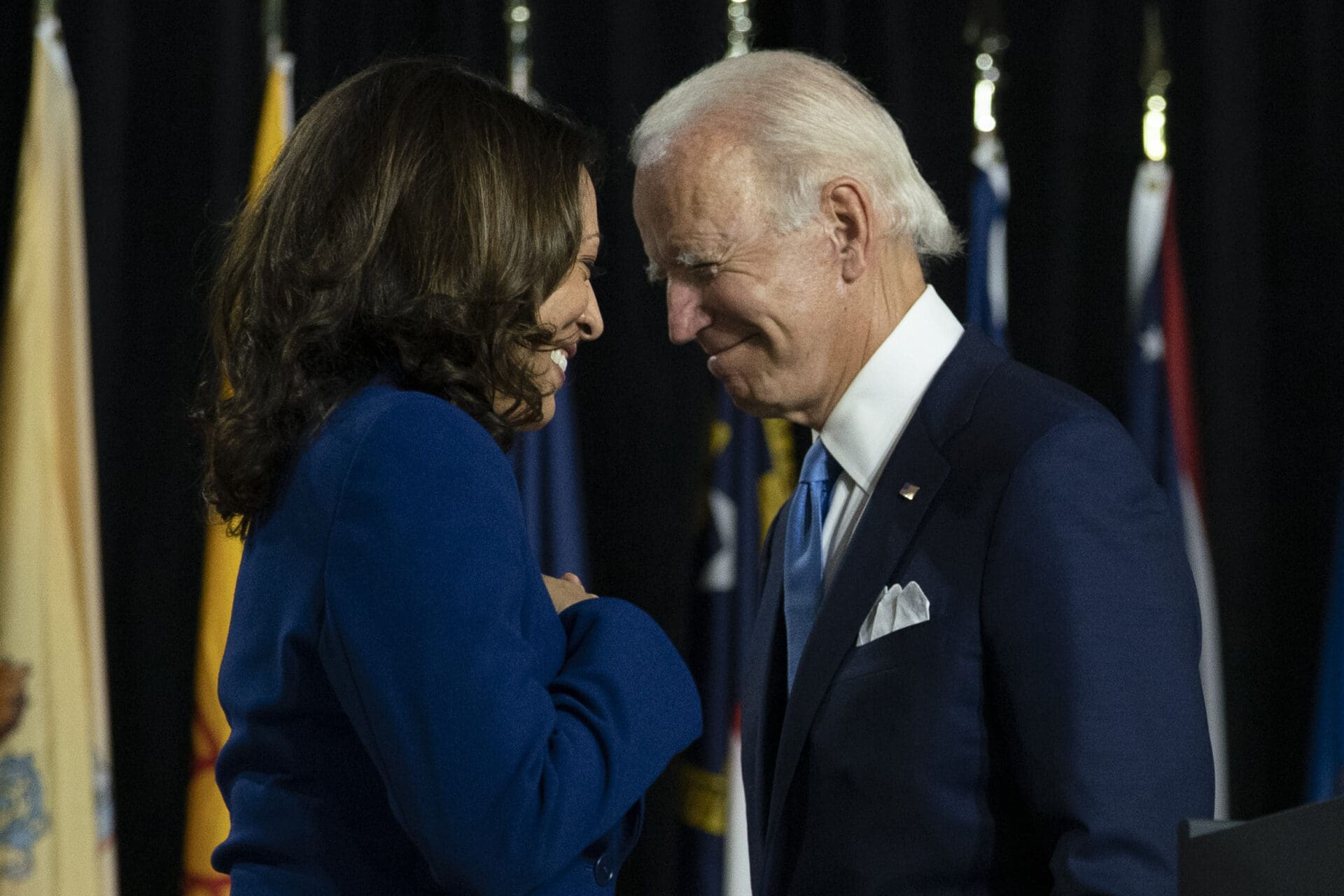
Today the Supreme Court heard oral arguments in New York State Rifle and Pistol Association v. Bruen, which is expected to produce the Court’s first major Second Amendment decision in over a decade.
MSLF’s Center to Keep and Bear Arms participated in a live blog during argument, and a panel discussion held afterwards. Earlier this year, we filed an amicus brief in the case—arguing against New York’s extremely restrictive permitting scheme, which deprives ordinary citizens of any real right to bear arms outside the home. Instead, New York residents must demonstrate a “special need” for such protection—thus making a Constitutionally-protected natural right into a government-granted privilege.
Laws of this sort cannot survive an accurate reading of the relevant text, history, and tradition—the test required by the Supreme Court since the 2008 Heller decision.
After today, the question appears to be: will the Court accurately interpret the text, history, and tradition in question? Or could these elements be profoundly misconstrued, as they were by a lower court’s recent high-profile exercise in “bad originalism”?
Crucially, the state of New York—aided by the Biden Administration’s Department of Justice—is not arguing that the Second Amendment only protects a right to bear arms within the home. No such argument was heard today from New York Solicitor General Barbara Underwood, or United States Assistant Solicitor General Brian Fletcher. At least as a practical matter of strategy, gun control advocates seem to have recognized that this is a losing argument, and abandoned it.
While denying the exercise of the right to almost everyone, New York itself has acknowledged that there is a right to bear arms in public—a glaring inconsistency highlighted by Paul Clement, in his argument on behalf of NYSRPA (and a former U.S. Solicitor General in his own right).
Rather than argue the existence or non-existence of public Second Amendment protections, all sides in today’s proceeding sought to argue in some degree based on the Constitution’s text, its historical background, and post-ratification tradition. The ground of discussion has shifted toward originalism, the insistence on the Constitution’s original public meaning.
This is an encouraging development, but it does not mean that the cause of gun rights triumphs by default. Originalist concepts can be abused to the point of butchery—as when the Ninth Circuit, purporting to engage in an originalist-style analysis of history, essentially erased the right “to bear” from the Second Amendment in Young v. Hawaii. Justice Kagan once famously said “We are all originalists,” although she is not among those normally described as such.
Some “bad originalism” was certainly heard in the Supreme Court today—as when NY SG Underwood repeated the anti-gun trope that public carrying of weapons in cities was per se “offensive” in England, and therefore can be regulated in the United States today. Meanwhile, some of US Assistant SG Fletcher’s argument—while ostensibly grounded in history—seemed to boil to down to letting local authorities do whatever they would deem “reasonable.”
Even so, it was good to see the opponents of gun rights forced to argue on originalist territory. And it bodes well for the decision: after all, the state of New York probably could have argued the case very differently, but clearly felt the need to appeal to skeptical (actual) originalists among the justices.
At the end of the day, however, it seems unlikely that enough justices of this persuasion will be swayed to uphold New York’s law.
Either way, one thing is virtually certain: the Center to Keep and Bear Arms will be extremely busy after the Court’s expected decision arrives in May or June 2022.
Cody J. Wisniewski is the Director of Mountain States Legal Foundation’s Center to Keep and Bear Arms and the author of an amicus curiae brief filed in NYSRPA v. Bruen.




My fervent dream/hope/desire is that SCOTUS issues a simple declaration that the Second Amendment is absolute and all laws to the contrary are hereby null and void. A fella can dream, right?
I wonder where DACIAN, the DUNCE is? I was certain, he’d be pontificating.
Here’s a fun fact. “Beverly” is both the name of a girl and the name of a troll.
Here is a bigger fun fact, the name Beverly dates back to William the Conqueror and was nobility.
You must be another one of dacian’s acolites. (Do you need to look up that word?)
They say “Education is a terrible thing to waste.”
I just posted this on another TTAG article this morning, but it’s appropriate for here as well:
Earlier this year, I got my CCW from a neighboring state. The entire process (class time, shoot test, application, trip to Sheriff station, Livescan/fingerprints/photo, etc.) took one single day. A long day, but a single day. I got my permit in the mail.
I applied for my CA permit as well. Took a week to complete the (split) class time and shoot test, then another couple of days to properly fill out the application because I needed to go back to the class instructor to get the required class completion certificate. Then I went to the Sheriff station and submitted the application. The Deputy confirmed that the application appeared to be in order with nothing lacking. That was back in July.
I am still waiting for the required interview. In CA, we need to be personally interviewed to “confirm” whatever, I guess. That’s the problem with “may issue”…even though I jumped through the hoops, paid the fees, and passed the background check, there’s still no guarantee I’ll even get the permit. So here we are, in November a few months later, and I’m still waiting.
Maybe they read your posts here and decided that they will have to do a more…um…in depth interview??? This is what I just talked about below in my comment. Otherwise what fucking business is it of theirs to have an ‘interview’? What’s the criteria for the interview? What is their justification purpose? Do they want to see if you are a white racist nationalist domestic terrorist? Please ask the person interviewing you to define the purpose of the interview in and of itself? And if you will, please report back to us here as to what she, he, or the A.I. computer said? Like their ‘confiscation’ beta testing, maybe they are already setting up and testing for the psychological disarmament evaluations and attendent laws or mandates they will need to prohibit gun ownership for their agenda?
This is outrageous! Not only do they want to ravage your privacy and property, they now want to get into your mind?!
CA law also allows for a psychological test to be applied, if the Sheriff of a particular County wishes to implement it. Farcical.
Ohhh… you’re P’ucked.
Make sure to get a LEO style haircut and wear off the rack slacks and a sport coat. Don’t show any tattoos. It might help if you go with your LEO buddy.
Depending which county, it might just work.
Massachusetts does the same thing. You apply and then you have to wait, oftentimes months, to get an ‘interview’ with the licensing officer and even though I can insist I want a concealed carry license, the licensing officer can on a complete whim, restrict it and not have to provide any reasons, except because I said so. Here because its may issue, speaking up about can result in them yanking the permit thus creating an instant felon.
Even when the legislature passed a law that required police to process all permits within 40 days, it never takes 40 days. It’s generally months and speaking up about it or complaining can get the license yanked and poof no second amendment for you. Even when people have tried to take the cities and towns to court they have been denied.
May issue is a giant club that is used to beat people into submission. “Be good or we take your livelihood, career, and good standing in the community away”. That’s why I want 100% constitutional carry in all 50 states and no permits. There was a time when I would have gone along with a licensing scheme with the left but they want the entire apple for themselves and not willing to discuss other opinions or let anyone else take a bite of the apple, so all gun laws must go. That’s the only answer.
By the way in Massachusetts the state that brags like a retarded donkey about their “tough gun laws” except when it comes down to prosecuting people on gun charges they are almost universally dropped by the day of trial. Meaning the criminals may have been charged with drugs and guns, but they only go to jail for the drugs, the gun charges are gone, but they count the conviction as evidence of gun laws work. It’s just a game that they are playing with numbers to fool people into thinking that they know what they are doing.
Never forget that, unlike ‘Reasonable’ Constitutional Americans. Commie Dictatorships do not care about banal theories of Originalist meanings. They have only one current cause in one target-focused agenda. And that is to totally disarm any potential anti-communist American citizens which to their agenda amount to nothing more than dissident terrorists preventing them from their Totalitarian rule agenda.
So any equivocation by SCOTUS outside of unanimously re-establishing absolute Uninfringement Law of the Land is a win for Communism. Because it will keep open the door to use any means to nullify the 2nd Amendment by misconstruing ‘acceptable’ exceptions to the ‘Shall Not Be Infringed’ Law of the Land.
Again, they want Disarmament, Swiftly and furiously. If they can wiggle out of violating the 2nd/A by any means possible, in the slightest little conciliation, it’s a winning scenario for them. They will simply hyper leverage the Traditional Practice of disarming ‘demonstrably’ dangerous persons, that our justice system already provides for, and since a precedent for this already exists…an expansion of the insidious ‘permanant’ prohibition of firearm possession from the ’68GCA, They will simply set up a ‘Test’ administered by any physician or phsychologist to determine if you will ‘NOT’ be prevented and prohibited from possessing a firearm. There was talk some years ago of using the DOT licensing and drug testing facilities to facilitate this exceptionally easy to implement ‘reasonable’ gun control and crime prevention effort. Everybody wanting to own a firearm must present their Federal and/or state FOID permit card. Or they become an instant criminal if possessing a firearm without it. Subject to immediate search and seizure and imprisonment. Since States like Illinois already have an FOID system, which they were planning on using to implement confiscations (with active teams) to those who were cross referenced with a previous purchase but had an expired or no FOID–so it will be ‘no problemo’ making more laws in the spirit of Commie totalitarian privacy violating despotism, as usual!, depending upon this coming SCOTUS decision. And you can challenge them in future courts until your ass falls off. They will still be implemented and in effect AND enforced the first chance they get!
After All, who can argue with a little well intentioned prevention for ‘Public Safety’ in the form of making sure everybody who wants a gun is mentally suited to have one. Other countries do this. You need to take a ‘qualification’ test just to drive a vehicle, don’t you? Or prescribe drugs, etc. etc.? How could it Not be reasonable for dangerous weapons? It is Not a violation of your 2nd/A rights. You could have one if you ‘pass’ the Test. Right? Right?!
Even though a couple years ago a National Psychological Review paper intimated that one out of every three persons could effectively be diagnosed with some kind of mental disorder based on substance abuse, medication side effects, cognitive disorders, emotional content, stress, depression, PTSD(All you war hero combat vets will be the first to fail their ‘tests’ automatically) physical health, politcal extremist views. and of course the old standby: That at some point in your life you committed a criminal act. Just Yesterday, in their fevereish frenzy to get every Man, woman, child, animal, and space alien visitor Innoculated, in the news yesterday they just threatened Veterans benefits for those who refuse to be vaccinated!
After almost a year of this ‘administration’ anybody can tell by now that this is exactly what WILL happen in this current administration of this Court doesn’t once and for all firmly establish the ‘Originalist’ Shall Not Be infringed Law of The Land enshrined in the 2nd/A.
And Shame on Barret if she even smells like she stalled on this.
I listened to the entire testimony yesterday and both the justices and the lawyers on both sides either ignored or did not confront the fact that what really needs to happen is to untangle obviously 19th century laws that were deeply racist and upheld by courts. Make the left, make the gun banners face their own racism and let the country see that these people are standing knee deep in their own racism.
If you detangle the racist nature of laws from 100+ years ago and leave yourself with what remains there is a deep tradition of actually no gun laws. I hope in the opinion Clarence Thomas writes it because then it will be a thing of beauty and I hope he touches on these issues.
What I heard on the live stream yesterday was a group of people who know they are wrong, we all know they are wrong and yet they say “yeah we know we’re wrong but we’re going to keep doing it anyways cause reasons”. That’s not a legal argument that was arrogance on display.
“Either way, one thing is virtually certain: the Center to Keep and Bear Arms will be extremely busy after the Court’s expected decision arrives in May or June 2022.”
Dream on.
It will be the very last opinion released by that court, on the the very last day, on their way out the door…
I got my New York permit in 2006. There was no training and it’s good for life. The only requirements were fingerprints, a bunch of money, and statements of good character from 3 people who have known you for more than 6 months in the county you are getting the permit, that alone makes it nearly impossible for anyone moving to NY to bring any handguns with them.
I know some counties have further requirements and training, I just happen to come from one of only two second amendment sanctuary counties in New York.
I don’t live in New York anymore, but they let me keep my permit. So now I have the rare non-resident NY pistol permit. I’m going to miss the special privilege I have in New York that most people can’t get, but it’ll be nice to be able to carry in NYC should I get lost and end up there or have a flight that has a layover.
” have a flight that has a layover ”
I wouldn’t recommend doing concealed carry (or any carry) in the airport or try to carry it on to the aircraft. TSA gets a little spikey about that sort of thing.
“Originalism,” “Text, history, and tradition,” or Heller “Stare decisis” as Chief Justice Roberts proposed, all result in the same outcome — concealed carry is not protected by the Second Amendment. That is why the NRA said popular opinion should decide what the right is today.
Leaving the scope of the Second Amendment right up to popular opinion is also fatal to the petitioners in NYSRPA v. Bruen because the people of New York don’t want people carrying handguns in public, openly or concealed. I suspect that most New Yorkers, particularly those in New York City would ban the mere possession of handguns and probably will if the NRA prevails and a majority of the Justices say that the scope of the Second Amendment right should be limited by public opinion.
And, of course, if the scope of the Second Amendment right can be limited by public opinion then so can every other right.
Charles Nichols, Sorry, but most New Yorkers own firearms with the exception of New York City where all firearms are heavily regulated. If every Nw Yorker who owned a firearm voted, we would be able to throw the leftists out of office in most parts of the State. UPstaters such as myself own more than 1/2 of the firearms in the STate. Right now there is a proposal to divide NYS into three autonomous regions, each region having their own courts, legislature, laws, etc.
Walter E Beverly III, are you 90 years old or 12 years old, or is English your second language? I ask because your comments show that you are unable to comprehend basic English.
Charles Nichols, Apparently I’m old enough to know what I am talking about as you sure don’t. Apparently you think you are a world class know-it-all just like a few others here.
网课代修 3
Comments are closed.